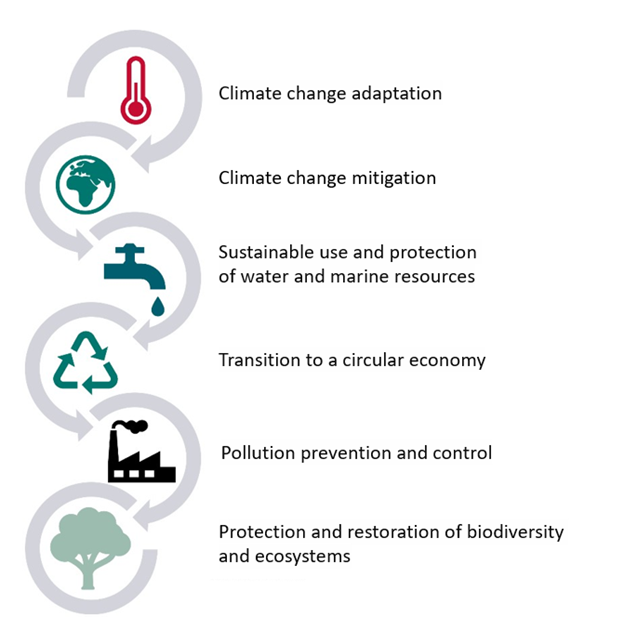The “Do No Significant Harm” principle (DNSH) is a principle derived from the European Union’s Green Deal. Its implementation ensures that any economic activity avoids causing significant harm to the environment as a whole and does not significantly hinder the achievement of environmental objectives. Economic activities are assessed based on six environmental objectives:
Economic activities are assessed throughout their entire lifecycle, encompassing the stages of production/construction, usage, and disposal. The assessment is based on the absolute impact of the activity itself, meaning it is not evaluated in comparison with other existing or planned activities, and considers both direct and primary indirect impacts.
The assessment results in a conclusion as to whether the implementation of the economic activity poses a significant risk to any of the previously mentioned environmental objectives or if the activity complies with the “Do No Significant Harm” principle. If an activity contributes to achieving one environmental objective, it must not simultaneously hinder the achievement of other environmental objectives. If the project harms (even one) environmental objective, the activity is not in compliance with the principle.
The DNSH principle is applied in the use of structural funds and the Recovery and Resilience Facility and applies not only to infrastructure projects but to all projects, regardless of the sector and supporting activities.


Previous experience
Hendrikson DGE has conducted DNSH analyses for various public authorities and companies:
- Corestone Green OÜ;
- NPM Silmet (now Magnet Ventures Europe OÜ);
- Vinkymon OÜ;
- OÜ Estover Piimatööstus;
- Saarte Liinid AS;
- City Government of Tartu;
- Ministry of Finance;
- State Shared Service Centre, and more.
Service inquiry
For additional information and price inquiries, please contact us at dge@dge.ee
